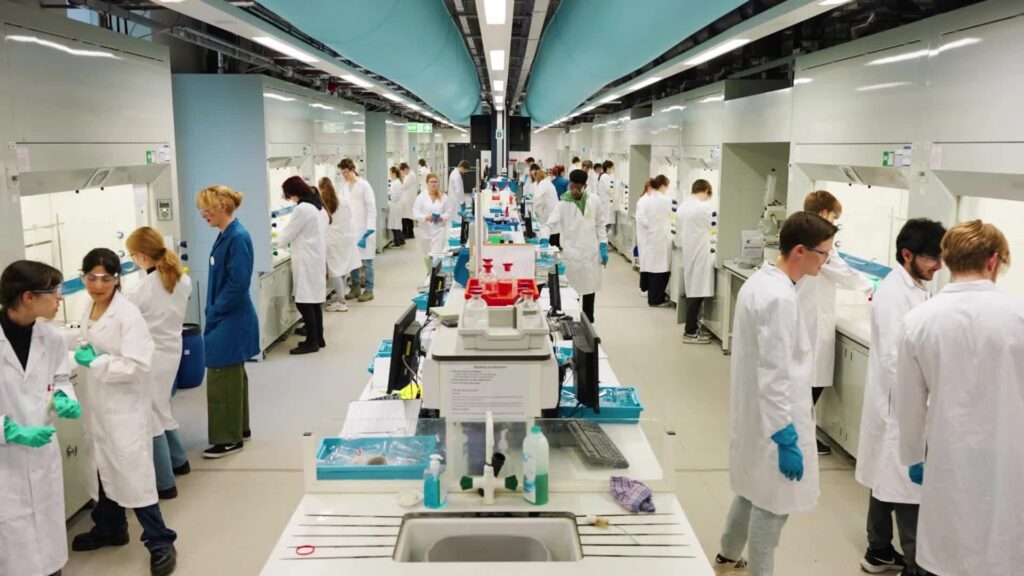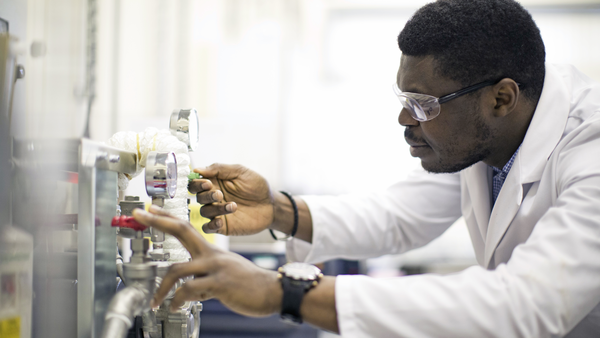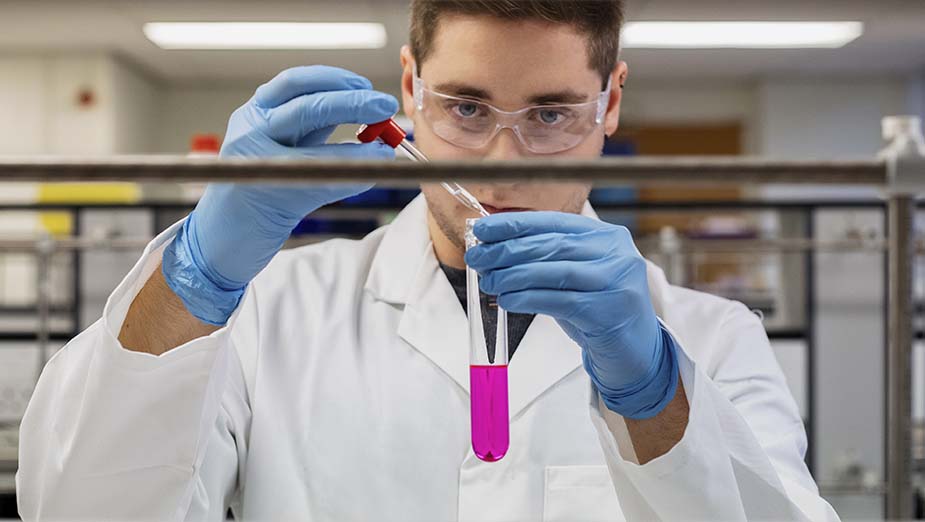To become a chemist in the UK, you’ll typically start with a bachelor’s degree in chemistry or a related field from a recognized university. During your undergraduate studies, you can specialize in areas like organic, inorganic, physical, analytical, or biochemistry.
Practical experience gained through internships or placements is invaluable. Consider pursuing postgraduate studies for further specialization or career advancement, though it’s not always mandatory. Join professional organizations like the Royal Society of Chemistry for networking and staying updated.
While not required, becoming chartered through the RSC can enhance your professional status. Look for job opportunities in various sectors such as pharmaceuticals, biotechnology, or academia, and continue learning to stay current with advancements in the field.
How to choose your undergraduate chemistry program?

The first step towards becoming a chemist in the UK is acquiring a solid educational foundation. Pursuing a bachelor’s degree in chemistry or a related field from a reputable university lays the groundwork for understanding fundamental principles and theories in chemistry.
Throughout your undergraduate studies, you’ll delve into various branches of chemistry, including organic, inorganic, physical, analytical, and biochemistry. These diverse areas of study offer insights into the different facets of chemical science and provide a broad understanding of the discipline.
Choosing the Right Program
When selecting a university program, consider factors such as curriculum content, faculty expertise, research opportunities, and facilities. Look for programs accredited by professional bodies such as the Royal Society of Chemistry (RSC), which ensures that the curriculum meets rigorous standards of quality and relevance.
Specialization Options
Within the field of chemistry, there are numerous specialization options to explore.
Whether your interests lie in synthesizing new molecules, studying chemical reactions, analyzing materials, or investigating biological processes, there’s a specialization to suit your passion and career goals.
Take advantage of elective courses, research projects, and extracurricular activities to explore different areas of chemistry and identify your niche.
Where to find practical experience during undergrad studies?

While academic knowledge is crucial, gaining practical experience is equally important for aspiring chemists. Seek out opportunities for internships, summer placements, or industrial placements during your undergraduate studies.
These hands-on experiences allow you to apply theoretical knowledge in a laboratory setting, develop essential laboratory skills, and gain insight into the day-to-day responsibilities of a chemist.
Whether conducting experiments, analyzing data, or collaborating with colleagues, work experience provides invaluable preparation for a career in chemistry.
Finding Work Experience Opportunities:
Explore opportunities for work experience through university career services, industry connections, and professional organizations. Research companies, government agencies, and research institutions that offer internships or placements in your area of interest.
Be proactive in reaching out to potential employers, submitting applications, and showcasing your enthusiasm and willingness to learn.
Making the Most of Work Experience
During your work experience placements, make the most of every opportunity to learn and grow. Take initiative, ask questions, and seek feedback from supervisors and colleagues.
Demonstrate professionalism, reliability, and a strong work ethic. Build relationships with mentors and industry professionals who can provide guidance, advice, and potentially future job opportunities.
Considerations for pursuing further studies in chemistry

For those looking to further specialize in a particular area of chemistry or pursue advanced research opportunities, postgraduate studies offer a pathway for deeper exploration.
Consider pursuing a master’s degree or PhD in chemistry or a related field. Advanced degrees provide opportunities to conduct original research, contribute to scientific advancements, and enhance your expertise in a specialized area of chemistry.
While not always necessary for entry-level positions, postgraduate studies can open doors to higher-level roles in academia, industry, or government research institutions.
Choosing a Postgraduate Program
When considering postgraduate studies, research potential programs carefully to ensure they align with your interests, career goals, and research aspirations. Look for programs with renowned faculty, cutting-edge research facilities, and opportunities for interdisciplinary collaboration.
Consider factors such as program duration, funding options, and potential for publications and conference presentations.
Conducting Research
One of the primary components of postgraduate studies is conducting original research under the guidance of a supervisor or research mentor.
Define a research project that aligns with your interests and contributes to the advancement of knowledge in your chosen field. Develop strong research skills, including experimental design, data analysis, and scientific writing.
Collaborate with fellow researchers, attend seminars and conferences, and disseminate your findings through publications and presentations.
Why join organizations like the Royal Society of Chemistry?
Joining professional organizations such as the Royal Society of Chemistry (RSC) is essential for aspiring chemists. These organizations offer valuable resources, networking opportunities, and professional development programs to support your career advancement.
Attend conferences, workshops, and seminars to stay updated on the latest developments in the field, connect with fellow professionals, and expand your knowledge base.
Engaging in continuous learning and professional development is crucial for staying current and competitive in the ever-evolving field of chemistry.
Joining Professional Organizations
Membership in professional organizations such as the Royal Society of Chemistry (RSC) provides access to a wide range of benefits, including networking events, career resources, and professional development opportunities.
Join specialized interest groups, committees, or forums related to your area of expertise to connect with like-minded professionals and stay informed about industry trends and opportunities.
Continuing Education and Training
Stay updated on the latest developments in the field of chemistry by participating in continuing education courses, workshops, and training programs.
Develop skills in areas such as laboratory techniques, data analysis, scientific communication, and project management.
Pursue certifications or accreditations relevant to your field or industry to demonstrate your expertise and commitment to professional development.
Steps to becoming chartered through RSC

While it’s not necessary, getting certified and registered professionally can show you’re serious about being a top-notch chemist and can make others trust your skills more. The Royal Society of Chemistry has a special status called CChem MRSC for people who really know their stuff. Getting this status means you’ve achieved a lot professionally and can help you move up in your career and get noticed.
To get this status, you need to prove you’ve got the right education, experience, and skills. This usually means showing off what you’ve done in a portfolio and maybe having a chat to prove you’re up to scratch.
Being chartered shows you’re committed to being a great chemist who follows the rules and acts ethically. It makes you stand out as a leader and expert in your field, which can open doors to better jobs, more recognition, and even leadership positions. Plus, being chartered gets you into special events, gives you access to job help, and lets you keep learning through the Royal Society of Chemistry.
Conclusion
Becoming a chemist in the UK is a rewarding and fulfilling journey that requires dedication, perseverance, and a passion for science. By following the steps outlined in this guide and embracing opportunities for education, experience, and professional development, you can embark on a successful career path in chemistry.
Whether conducting groundbreaking research, developing innovative solutions, or inspiring the next generation of scientists, chemists play a vital role in shaping the future of science and society. Embrace the challenges and opportunities that come your way, and you’ll be well on your way to making meaningful contributions to the field of chemistry in the UK and beyond.
